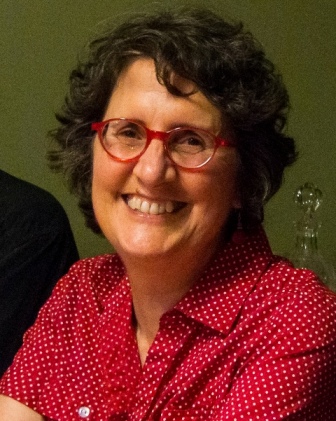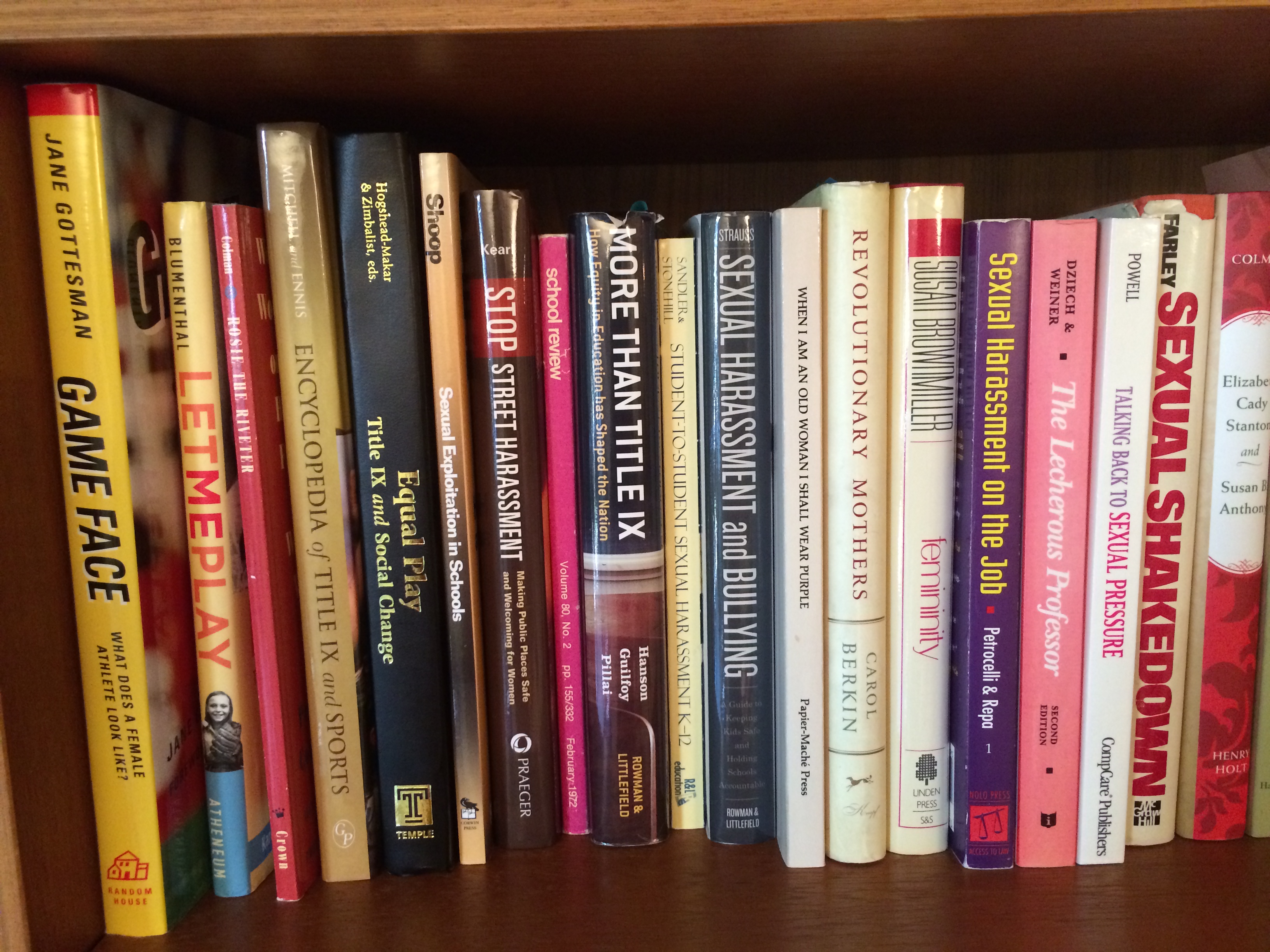Students as sexual predators: the norm?

Comedian Betsy Salkind
What do Title IX, the comedian Betsy Salkind, and the new film The Hunting Ground have in common? A historical thread that’s about to change one sorry aspect of U.S. society. Finally. I hope.
The Hunting Ground opens in cities across the United States this week and offers the possibility of a fundamental cultural shift toward accepting that non-consensual sex is an assault even if it’s done by a peer, like a student with a student, and that schools must not hide, tolerate, or condone it. At least, I think that’s what the film may point toward. I plan to see it soon, and hope that some of you do, too, especially if you’re in college, headed toward college, or about to send your kid to college.
Sexual assault and harassment on campuses aren’t new, but there are differences today that make this fundamental cultural shift finally possible, I think. The Internet certainly is one. There’s also the fact that several generations of women have grown up under Title IX believing that they can be or do anything they set their minds to, and growing physically and mentally stronger through athletics and other pursuits previously denied to women. Some young women now are strong enough to stand up and use their real names when they say, “Hey! I was raped!” and demand change.
The histories of people behind Title IX illustrate why this moment in time may offer the best chance of changing the “rape culture” on campuses that The Hunting Ground explores. Bernice Sandler, the godmother of Title IX, coined the term “gang rape,” and some of the earliest Title IX lawsuits were about sexual assault and harassment. Until we had words to describe things like this, it was all too easy for many people to consider them “normal” behavior. Sandler remembers in college many decades ago hearing a whispered rumor about a female student who “had sex with eight men at a party,” and all that any of the girls gossiping could think to comment was, “Can you believe it? She must be a nymphomaniac.”
Betsy Salkind was sexually assaulted by a fellow student within a week of her arriving as a freshman at the Massachusetts Institute of Technology (MIT) in 1981. She soon heard that her roommate and other women had been assaulted too. The problem was widespread, college officials weren’t doing anything about it, and the campus was a hostile environment, showing porno films in the school theater. Irene Baker, Salkind, and other students filed a sexual harassment complaint against MIT under Title IX, but after they graduated the Office for Civil Rights dismissed the complaint, saying they weren’t students there any more so they lacked jurisdiction. The MIT students had networked with women at Brandeis University and other local colleges, but “Each campus is like a little fiefdom — they can just wait for the students on their campus to graduate, and they’re done,” Salkind told me in an interview.
Officials’ attitudes were that sexual assault was a personal issue instead of political. They considered it an aberration, something best handled by a grievance procedure to deal with the accused and confidential individual therapy for the victim, when instead it was ubiquitous behavior, part of the norm, she said. “The only thing that would help would be to change what’s `normal.'”
Women kept pushing for change, and the U.S. Office for Civil Rights in 1997 issued its first Sexual Harassment Guidance for schools. The Supreme Court ruled in two cases in 1998 and 1999 that schools could be liable for “deliberate indifference” to harassment of female students if they didn’t act. In 2011 the Office for Civil Rights outlined three procedural requirements for dealing with sexual harassment that schools must meet to comply with Title IX, setting the stage for today’s students to push colleges to deal or risk losing their federal funding.
Thanks to the Internet, the two rape survivors at the University of North Carolina who are featured in The Hunting Ground connected with survivors at other college campuses, turning what might once have been contained in their individual campus silos into a national movement for change that will continue after any one student graduates. It might finally change the norm.
Oh, and Salkind? She went on to write a Master’s thesis entitled, “Can’t You Take a Joke? A Study of Sexual Harassment Among Peers” (which she wanted to call, “Fuck Her if She Can’t Take a Joke,” but the college balked), and later became a highly successful stand-up comic and writer for Saturday Night Special, the Roseanne Show, and more . She considered graduate school in sociology to do a study on humor and misogyny but realized that by being a comic she could say the same things and have a much bigger audience.
The Hunting Ground is playing now in Los Angeles, New York, Vancouver, and Newark. It opens Friday in theaters in San Francisco, Berkeley, Washington, D.C., Cambridge, Halifax, Pasadena, and Toronto, and in other cities after that. Screenings are being held on college campuses too. See the full schedule here.
UPDATE: I had braced myself emotionally before seeing The Hunting Ground but found it to be inspiring! The student activists featured in the film are courageous and deserve the support of students, parents, and alumni in pushing college administrators to protect students instead of reputations. Go see.






